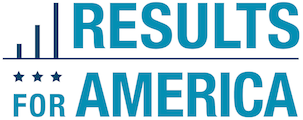New Moneyball for Government Video Shows Why “Continuous Learning” Leads to Better Outcomes

The Moneyball for Government campaign today released the third installment in a video series highlighting the benefits of investing in what works. This latest video showcases how three leading non-profits are continuously learning what works, for whom and in what circumstances – and then using that information to improve outcomes for the populations and communities they serve. The video shows that these organizations have achieved better results through continuous learning and that they are blazing a trail that government at all levels can and should follow. View the “Continuous Learning” video here.
Narrated by Melody Barnes, former Director of the White House Domestic Policy Council (DPC) under President Obama, the video, titled “Continuous Learning,” features City Year, Communities in Schools and LIFT, and discusses how they each use data, evidence and evaluation to continuously learn and shift or scale efforts based on what works. The leaders of these three organizations are also part of the bipartisan Moneyball for Government All-Star team. “Continuous Learning” builds on Moneyball for Government’s previous videos, titled “What Works,” narrated by former George W. Bush DPC Director and Moneyball All- Star John Bridgeland, and “A Lesson for Washington” narrated by U.S. President of United Way Worldwide and Moneyball All-Star Stacey D. Stewart. To view “What Works” and “A Lesson for Washington,” click here.
“This video highlights what many organizations do every day across the country and what governments at all levels, can and should be doing: using data, evidence and evaluation to continuously learn what works in order to improve outcomes for young people, families and their communities,” said Michele Jolin, Managing Partner and Founder of Results for America. “Moneyball for Government doesn’t just mean numbers in a spreadsheet – it means applying data and evidence continuously to make better decisions and get better results with limited resources. More importantly, by applying continuous learning models to investing in programs with proven results we can continually develop, improve and adapt to changes when needed. These organizations are great examples of what can happen through continuous learning.”
City Year is focused on bridging the gap in high-poverty communities between the support the students in the communities actually need and what their schools are designed to provide. Through experience, self- reflection, and third-party evaluations, City Year learned that it could make a bigger impact if it focused its attention on helping kids in school. Today, students at City Year partner schools have increased attendance by 14,600 hours compared to the previous year, according to their latest data. Students at schools with City Year tutors also exhibit 1.4 times more growth in literacy and math scores.
Communities in Schools (CIS) works with schools, communities, and families to surround students with a caring network of support to help them stay in school and succeed in life. CIS developed a Virtuous Learning Cycle to evaluate what was or wasn’t working in its efforts. The Cycle’s steps include: innovation; research; internal or third party evaluation; and codifying research into best practices. As a result of its research, CIS discovered that many students suffer a significant dip in self-esteem after their freshman year. The organization responded by helping students set achievable academic goals, which helped boost self-esteem, lower drop-out rates and dramatically increase grade point averages.
LIFT has spent 15 years helping people lift themselves out of poverty. By collecting structured feedback after every meeting with a member, LIFT learned that those individuals with strong social networks were twice as likely to make progress on their financial goals. In response, LIFT adapted and focused its operations on increasing its members’ social connections.
These three organizations are also featured in the recently-released book, Moneyball for Government. The book, which is available for purchase through Amazon, features 25 organizations that are successfully using data and evidence to improve outcomes for kids, families and communities, 12 high profile Republican and Democratic leaders supporting the use of data and evidence in policymaking, 6 interviews with leaders who have driven this change, and more than 2 dozen policy recommendations for how to make this happen even in today’s challenging environment.


